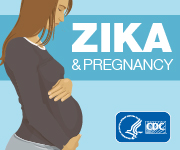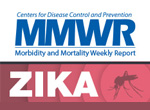COCA Email Updates: February 1 – February 16, 2016
If you have any questions on these or other clinical issues, please write to us at coca@cdc.gov
Available for download: February 16. 2016, COCA Email Update
COCA News and Announcements
Upcoming COCA Calls:
High Burden, Great Opportunity: Preventing Heart Attacks and Strokes
Date: Tuesday, February 23, 2016
Time: 2:00-3:00 pm (Eastern Time)
Dial In Number: 800-857-9697 (U.S. Callers); 212-287-1833 (International Callers)
Passcode: 4396514
Webinar: https://www.mymeetings.com/nc/join.php?i=PW6927490&p=4396514&t=c
During this COCA Call, clinicians will learn about the components of Million Hearts® and the strategies to help find and address the needs of those at greatest risk for cardiovascular disease.
Recent COCA Webinars/Calls:
NEW: 2015-2016 Influenza Activity and Clinical Recommendations
Date: Tuesday, February 16, 2016
During this COCA Call, clinicians learned about 2015-2016 influenza activity, heard an overview of CDC's current recommendations for vaccination and antiviral medications, and gained insight into data supporting the recommendations.
Zika Virus - What Clinicians Need to Know
Date: Tuesday, January 26, 2016
Presenters reviewed with participants the epidemiology and clinical manifestation of Zika virus disease and how early recognition and reporting of suspected cases can mitigate the risk of local transmission.
Archived COCA Conference Calls
Free continuing education credits (CME, CNE, ACPE, CEU, CECH, and AAVSB/RACE) are available for most calls. More information about free CE.
CDC Emergency Response
2016 Zika Virus
NEW: MMWR: Interim Guidelines for Health Care Providers Caring for Pregnant Women and Women of Reproductive Age with Possible Zika Virus Exposure - United States, 2016Updated guidelines include a new recommendation to offer serologic testing to asymptomatic pregnant women (women who do not report clinical illness consistent with Zika virus disease) who have traveled to areas with ongoing Zika virus transmission. This update also expands guidance to women who reside in areas with ongoing Zika virus transmission. Local health officials should determine when to implement testing of asymptomatic pregnant women on the basis of information about levels of Zika virus transmission and laboratory capacity.
NEW: MMWR: Interim Guidelines for Prevention of Sexual Transmission of Zika Virus - United States, 2016
Sexual transmission of Zika virus is possible, and is of particular concern during pregnancy.
NEW: MMWR: Local Transmission of Zika Virus - Puerto Rico, November 23, 2015-January 28, 2016
During November 23, 2015-January 28, 2016, a total of 155 suspected Zika virus disease cases were identified in Puerto Rico, including 82 reported through passive surveillance, and 73 specimens tested through the enhanced surveillance protocol.
NEW: Zika Virus Microsite
CDC has developed an easily embeddable collection of Zika Virus information for partner and stakeholder websites. This collection, called a microsite, can supplement partner web sites with CDC's up-to-date, evidence-based content.
updated: Zika Travel Information
updated: Clinical Evaluation
The primary way Zika virus is spread to people is through mosquito bites. The most common symptoms of Zika virus disease are fever, rash, joint pain, and conjunctivitis. Transmission of the virus from mother to newborn can occur if the mother is infected with the Zika virus near the time of delivery.
updated: Diagnostic Testing
Zika virus disease can often be diagnosed by performing reverse transcriptase-polymerase chain reaction (RT-PCR) on serum. Testing is performed at the CDC Arbovirus Diagnostic Laboratory. Contact your state health department to facilitate testing.
NEW: Emerging Infections Diseases Letter: Detection of Zika Virus in Semen
"We report additional evidence for this potential route of transmission after identification of an imported case of ZIKV infection into the United Kingdom."
NEW: CDC's Zika Virus Digital Press Kit
NEW: Transcript for CDC Telebriefing: Zika
NEW: CDC Emergency Operations Center Moves to Highest Level of Activation for Zika Response
2014 Ebola in the United States and West Africa
updated: Case Counts
CDC News and Announcements
NEW: New Lyme-Disease-Causing Bacteria Species Discovered
The Centers for Disease Control and Prevention, in collaboration with Mayo Clinic and health officials from Minnesota, Wisconsin, and North Dakota, report the discovery of a new species of bacteria (Borrelia mayonii) that causes Lyme disease in people.
CDC Science Clips: Volume 8, Issue:6
Each week select science clips are shared with the public health community to enhance awareness of emerging scientific knowledge. The focus is applied public health research and prevention science that has the capacity to improve health now.
Public Health Preparedness
Emergency Preparedness and Response - (CDC)
Find preparedness resources for all hazards.
Emergency Preparedness and Response Training Resources for Clinicians - (CDC)
Find online and in-person training resources.
Natural Disasters and Severe Weather
Be Prepared to Stay Safe and Healthy in Winter - (CDC)
Food and Water Needs: Preparing for a Disaster or Emergency - (CDC)
Health and Safety Concerns for All Disasters - (CDC)
Morbidity and Mortality Weekly Report (MMWR)
The MMWR series is CDC's primary vehicle for scientific publication of timely, reliable, authoritative, accurate, objective, and useful public health information and recommendations. To subscribe electronically, go to. Electronically Subscribe.
February 12, 2016 / Vol. 65 / No. 5 Download .pdf document of this issue
- Influenza-Related Hospitalizations and Poverty Levels — United States, 2010-2012
- Progress Toward Strengthening National Blood Transfusion Services - 14 Countries, 2011-2014
- Notes from the Field: Circulating Vaccine-Derived Poliovirus Outbreaks - Five Countries, 2014-2015
February 12, 2016 / Vol. 65 / No. 1 Download .pdf document of this issue
Infectious, Vector-Borne and Zoonotic Diseases
Seasonal Influenza
What You Should Know for the 2015-2016 Influenza Season - (CDC)
Information for Health Professionals - (CDC)
Weekly Flu View - January 9 (CDC)
Flu View is a weekly influenza surveillance report prepared by CDC Influenza Division. All data are preliminary and may change as CDC receives more reports.
Planning and Preparedness: Health Professionals and Seasonal Flu- (HHS)
Travel Safety
Current Travel Warnings - February 5 (US Department of State)
The U.S. Department of State issues Travel Warnings when long-term, protracted conditions make a country dangerous or unstable. Travel Warnings recommend that Americans avoid or carefully consider the risk of travel to that country. The State Department also issues Travel Warnings when the U.S. Government's ability to assist American citizens is constrained due to the closure of an embassy or consulate, or because of a drawdown of State Department staff.
Food, Drug and Device Safety
NEW: Central Venous Catheters and Pressure Monitoring Sets and Trays by Cook Medical: Recall - Catheter Tip Fracture and/or Separation - (FDA)
Potential adverse events that may occur as a result of catheter tip fracture and/or separation include loss of device function, the need for medical intervention to retrieve a separated segment, and complications resulting from a separated tip occluding blood flow to end organs.
NEW: Oxylog 2000 Plus, 3000, and 3000 Plus Emergency Transport Ventilators by Dräger Medical: Class I Recall - System Error May Lead to a Halt in Ventilation Therapy - (FDA)
An electrical issue may cause the device to stop working if the control knobs (adjustment potentiometers) are not regularly used. If the device operator does not intervene, the patient may not receive enough oxygen and could suffer serious adverse health consequences, including injury or death..
NEW: Multistate Outbreak of Salmonella Virchow Infections Linked to Garden of Life RAW Meal Organic Shake & Meal Products - (CDC) As of February 1, 2016, 11 people infected with the outbreak strain of Salmonella Virchow have been reported from nine states. The epidemiologic and laboratory evidence available at this time suggests that RAW Meal Organic Shake & Meal products made by Garden of Life, LLC are a likely source of this outbreak.
MedWatch: The FDA Safety Information and Adverse Event Reporting Program - (FDA)
MedWatch is your Food and Drug Administration (FDA) gateway for clinically important safety information and reporting serious problems with human medical products.
FoodSafety.gov Reports FDA and USDA Food Recalls, Alerts, Reporting & Resources - (HHS/USDA/FDA/CDC/NIH)
Foodsafety.gov lists notices of recalls and alerts from both FDA and USDA. Visitors to the site can report a problem or make inquiries.
The CDC and HHS logos are the exclusive property of the Department of Health and Human Services and may not be used for any purpose without prior express written permission. Use of trade names and commercial sources is for identification only and does not imply endorsement by the US Department of Health and Human Services.
Links to non-Federal organizations are provided solely as a service to our users. Links do not constitute an endorsement of any organization by CDC or the Federal Government, and none should be inferred. The CDC is not responsible for the content of the individual organizations.
- Page last reviewed: January 21, 2016
- Page last updated: March 7, 2016
- Content source:
- Maintained By:





 ShareCompartir
ShareCompartir